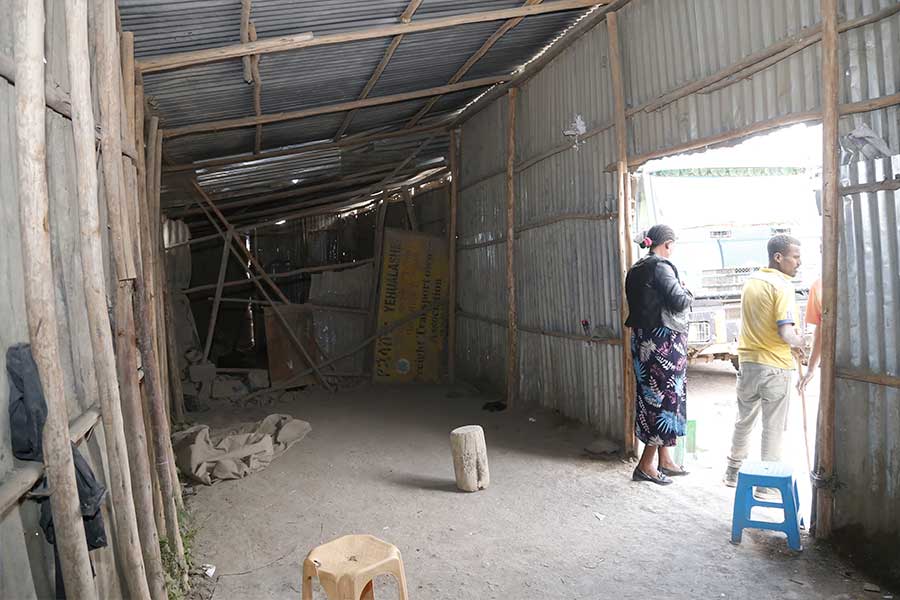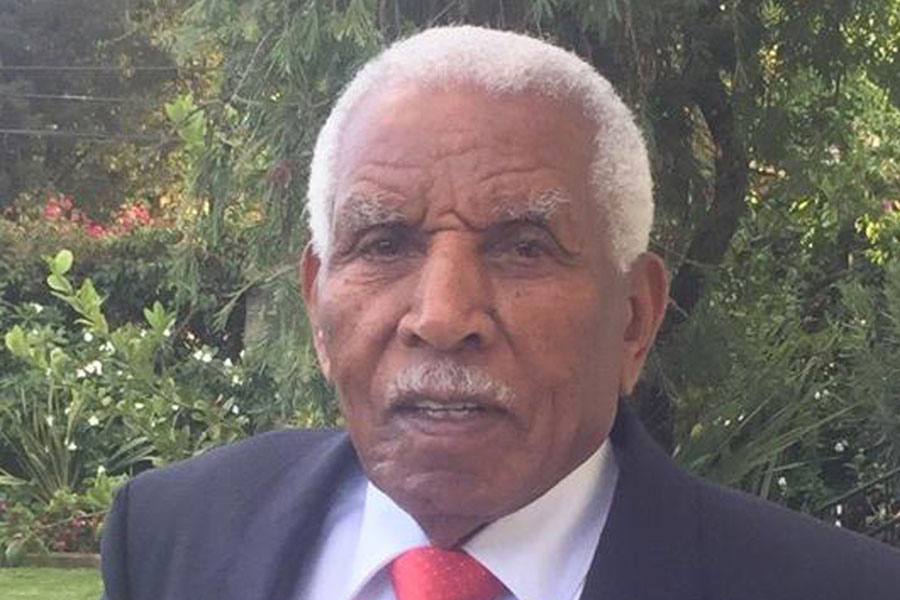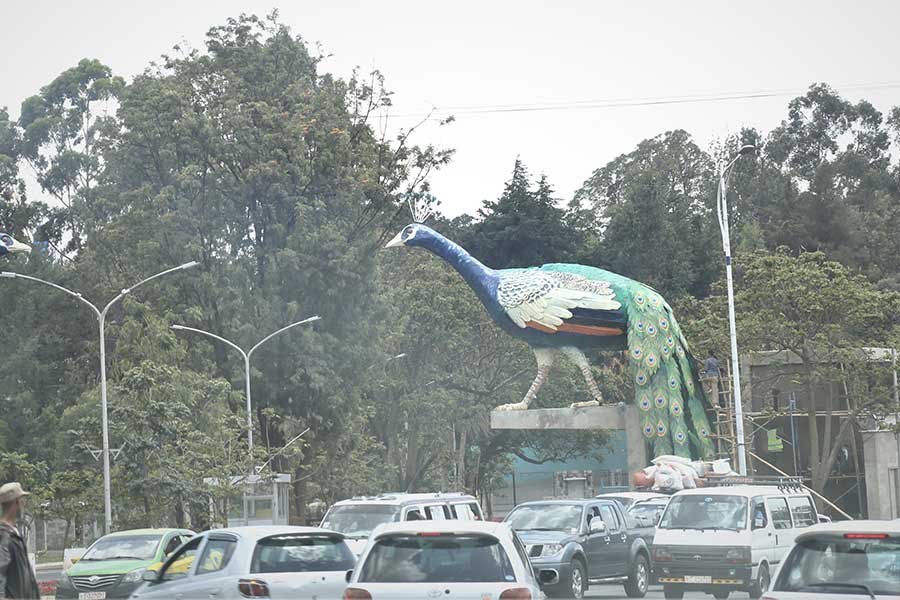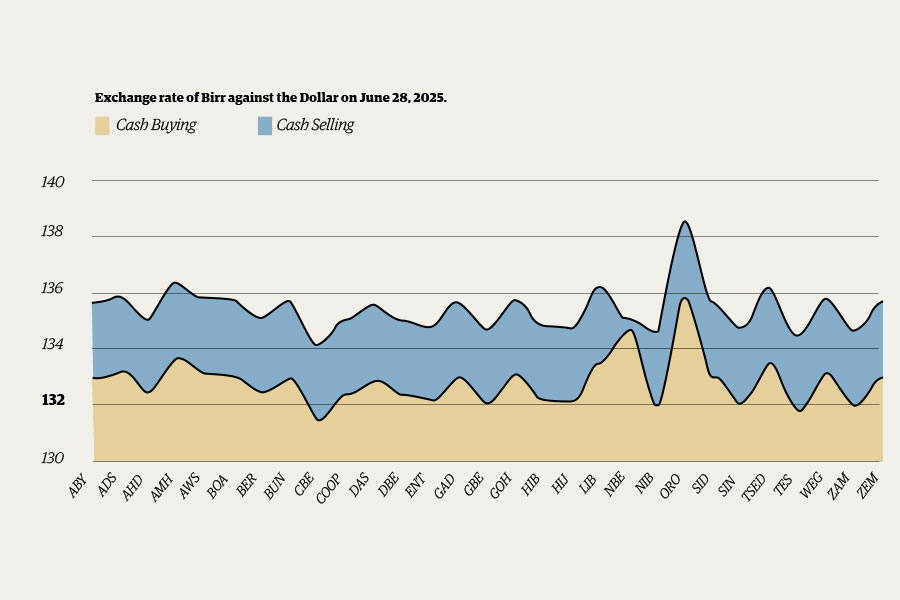
Agenda | Aug 22,2020
Jan 31 , 2021
By Kidist Yidnekachew
Recently, I went to one of Addis Abeba's rich suburbs, behind Bole Medhanialem, to fetch an item from a friend. Walking through, there was no shortage of nice parked cars, fancy gates and houses that resembled a mini presidential palace.
Tucked in the middle, a sore in the eye, was a small house, an excuse of a slum. It was out of place and a bit secluded. Two women sat outside of the house, talking among themselves. Their voices were barely audible, but later, as they got caught up in the conversation, they began talking loudly and emotionally.
I became curious about their conversation, and right then, as if they read my mind, one of the women dressed in a long grey dress asked me if I was waiting for someone. I said yes and was offered a stool to sit on. I accepted the offer and made my self cosy.
They asked if I was new to the area. I was. But I was about to be introduced to it in detail.
"We were just talking about how most people in this neighbourhood seemed rich but weren't really rich," one of them said.
Judging from the gates and the cars, it is hard to say they were not, it seemed to me.
"See that is the thing,” she continued. “Most of the people don't live in these houses. They rent them as guest houses for diaspora or foreigners. That explains the expensive cars."
Interesting. Still, it makes the owners of the houses rich. They must live lavishly somewhere else with the rent money they get. We live in an era in Ethiopia where houses can be rented for upwards of 100,000 Br for embassies or businesses.
"Most live in condominiums or cheap houses and don't even own a car,” the women explained. “Most of the people that look after the houses have family members abroad - the real owners of the houses.”
The ones who live here were just trustees who collect the rent money and use it for themselves as they do not seem to have a stable income source. It is not an out of place occurrence. Many diaspora own homes in Ethiopia, but usually, it is looked after for them by some relative here. They either share or take the entire rent money.
“Most of the homes' owners are parents or elder siblings who live abroad,” one of the women added. “They support their children or siblings financially. Meanwhile, the children don't work and live off the rent money.”
The older of the two complained that the relatives here spend the cash on addictive substances. This is easy money, thus they are lazy and do not have jobs. At least that was their assessment.
With an estimated three million Ethiopian people living outside of Ethiopia, where most other countries are rich, many of us at home have come to depend on them. Even though it is generous of them to send us money, it has made us, and in many ways the country itself, dependent on them. Even the government looks forward to remittances, usually amounting to billions of dollars annually, to service its foreign currency shortage.
"What about you, what's your story?" I asked once my curiosity got the best of me.
The older of the two, the aunt of the younger one, went on. She started raising her when she was five years old after her parents got divorced. Her mother went to Bahrain, and her father remarried. Things were not too bad, as she had a big house with rooms in the backyard to rent.
But her eldest son started gambling and drinking. The house was in his name. Thus, when the going got tough, he sold it, and there they were.
“I bought this house with the little money I had saved up," she said. “Regardless of what he did, I still love him, but I couldn't save him.”
He has since moved to South Africa through illegal routes. She does not know about his whereabouts. She prays every day to see him once more.
The person I was waiting for showed up at around this time. I thanked them for the chair and the conversation. They told me to come by and see them if I ever came to the neighbourhood again. I left with sadness in my heart.
What if he is still a gambler and an alcoholic and breaks her heart again? Was it better if he was out of her life for good or if he reappeared again?
Maybe he is a changed man now. But one thing is for sure. Things are not what they really seem, and there are more pressing issues than a diaspora family member spoiling us with the easy rent money that comes from it.
PUBLISHED ON
Jan 31,2021 [ VOL
21 , NO
1084]


Agenda | Aug 22,2020

Obituary | Jun 17,2023

Fortune News | Sep 18,2021

Verbatim | Aug 31,2019

Radar | Aug 16,2020

In-Picture | Apr 04,2020

Fortune News | Feb 01,2020

Money Market Watch | Jul 06,2025

Viewpoints | Jul 10,2020

Delicate Number | Apr 13, 2025

My Opinion | 131766 Views | Aug 14,2021

My Opinion | 128149 Views | Aug 21,2021

My Opinion | 126095 Views | Sep 10,2021

My Opinion | 123717 Views | Aug 07,2021

Dec 22 , 2024 . By TIZITA SHEWAFERAW
Charged with transforming colossal state-owned enterprises into modern and competitiv...

Aug 18 , 2024 . By AKSAH ITALO
Although predictable Yonas Zerihun's job in the ride-hailing service is not immune to...

Jul 28 , 2024 . By TIZITA SHEWAFERAW
Unhabitual, perhaps too many, Samuel Gebreyohannes, 38, used to occasionally enjoy a couple of beers at breakfast. However, he recently swit...

Jul 13 , 2024 . By AKSAH ITALO
Investors who rely on tractors, trucks, and field vehicles for commuting, transporting commodities, and f...

Jul 5 , 2025
Six years ago, Ethiopia was the darling of international liberal commentators. A year...

Jun 28 , 2025
Meseret Damtie, the assertive auditor general, has never been shy about naming names...

Jun 21 , 2025
A well-worn adage says, “Budget is not destiny, but it is direction.” Examining t...

Jun 14 , 2025
Yet again, the Horn of Africa is bracing for trouble. A region already frayed by wars...

Jul 6 , 2025 . By BEZAWIT HULUAGER
The federal legislature gave Prime Minister Abiy Ahmed (PhD) what he wanted: a 1.9 tr...

Jul 6 , 2025 . By YITBAREK GETACHEW
In a city rising skyward at breakneck speed, a reckoning has arrived. Authorities in...

Jul 6 , 2025 . By NAHOM AYELE
A landmark directive from the Ministry of Finance signals a paradigm shift in the cou...

Jul 6 , 2025 . By NAHOM AYELE
Awash Bank has announced plans to establish a dedicated investment banking subsidiary...